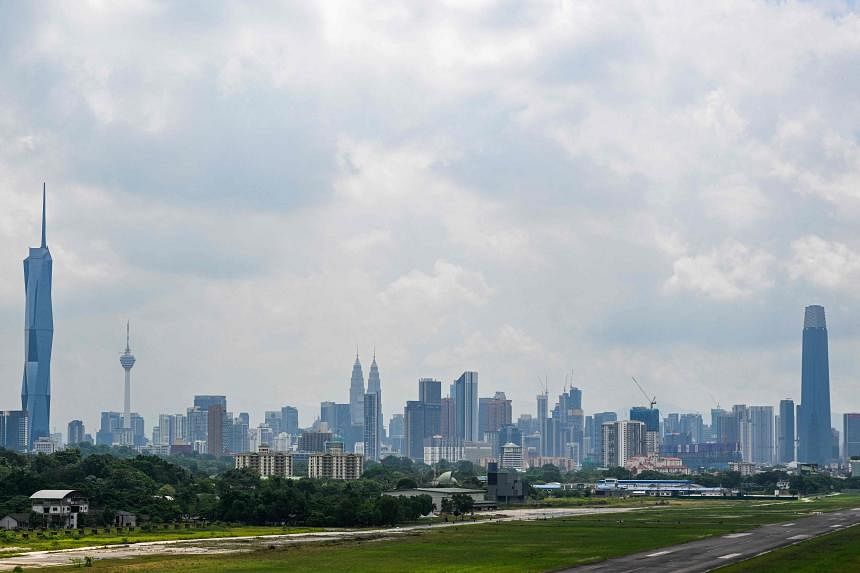KUALA LUMPUR – Malaysia is seeing a surge in Chinese buyers inquiring about multimillion-ringgit luxury homes, with investment and education opportunities driving their interest in residing there. Several real estate firms told The Straits Times that 2024 has seen more Chinese nationals looking to buy homes, especially in Kuala Lumpur’s prime areas like the central business district and leafy suburbs, including Bukit Damansara, Bangsar and Kenny Hills. Malaysia’s relative political stability and anticipated stronger economic growth than a year ago have made it an attractive destination for wealthy Chinese, the firms noted, especially with other countries clamping down on education and business avenues for foreigners.
Industry players said luxury residential property usually refers to those priced at RM1 million (S$300,000) and above . This is nearly twice the average price of a new apartment, which now stands at RM582,887, according to data released by global proptech firm Juwai IQI in its Residential Sales Market Report for Malaysia’s first quarter of 2024. Every year, Juwai IQI receives thousands of inquiries from potential foreign buyers.

And in the first quarter of 2024, the number of inquiries from Chinese buyers rose by 42 per cent from the preceding quarter, said its chief executive officer, Mr Kashif Ansari. “The 42 per cent increase in inquiries by Chinese buyers resulted in a similar increase in buyers purchasing homes. They made up the largest segment of foreign buyers in Malaysia, who are generally looking to buy either landed or high-rise apartments, mainly in Kuala Lumpur and Johor, of up to RM2 million,” Mr Kashif told ST.
He declined to reveal the actual figures of inquiries and homes sold, saying that it was proprietary information. It was reported in 2023 that a growing number of Chinese investors were offloading their overseas properties due to higher mortgage payments driven by rising global interest rates and slowdown in China’s economy. However, Mr Kashif said there is still a large number of Chinese citizens looking to buy properties in Malaysia.
A revamp of the Malaysia My Second Home (MM2H) residency visa scheme in June has also made it compulsory for foreign residents to buy property in the country. Malaysia has become the second most popular South-east Asian destination for Chinese real estate buyers, up from third place in 2022, said Juwai IQI in early 2024. Thailand is in the top spot.
Malaysia, in general, allows foreigners to buy only property in the upper tiers of the real estate market priced at RM1 million and above, to ensure that locals are not priced out of the market. But some Chinese nationals have been eyeing properties way above this price range. Zerin Properties chief executive officer Previn Singhe, whose firm mainly deals with high-net worth individuals, said his company recorded a significant uptick in foreign high-net worth individuals buying luxury properties valued above RM4 million, with an estimated 20 per cent increase in transactions in the first half of 2024 compared to the second half of 2023.
“Malaysia’s stable government, heightened economic activity, and the diversity of various races are enticing buyers from China and UK to live with their families in the multicultural society,” Mr Previn told ST. He said that China and British buyers make up the largest segment of foreign buyers of luxury properties that his firm has sold, and there are also wealthy individuals from India looking to buy high-end homes as they are relocating their businesses to Malaysia. These buyers are generally looking for high-end condominiums and landed houses with above 4,000 sq ft built-up space worth more than RM4 million.
Overall, the number of Chinese nationals residing in Malaysia has grown due to more of them studying or working here. According to the education ministry, Malaysia’s higher education institutions saw 44,043 Chinese students in 2023, a 35 per cent increase from 2021. “Students will be the significant driver of housing demand in Malaysia because many families find it more convenient to purchase a home,” noted Mr Kashif.
In a recent Financial Times report, a Chinese trade official was quoted as saying that the number of Chinese executives and employees working at Chinese companies in Malaysia has quadrupled over the past three years – from 10,000 in 2021 to about 45,000 currently. In the same report, Mr Ngeow Chow Bing, director at the Institute of China Studies at the University of Malaya, estimated the number of Chinese citizens living in Malaysia has almost doubled in the last three years to between 150,000 to 200,000, driven by an increased number of Chinese students and new investors. Ms Chen Lingling is one of the many Chinese nationals seeking to relocate to Malaysia and has been on the hunt for a property in Kuala Lumpur with her budget of RM1.
5 million. She plans to relocate her family and enrol her children at an international school. She also wants to move her jewellery business , and has looked at other markets, including Indonesia, Thailand and Singapore.
She has decided that Malaysia is the most attractive option overall as it offers better long-term economic prospects . “I am looking to buy a house because I believe the next 20 years are golden years for Malaysia as it stands to be a beneficiary of the US-China trade war. Property taxes in Singapore are significantly higher for foreign buyers, making Malaysia a more attractive option,” said the 48-year old .
Singapore’s additional stamp duty for foreign buyers, at 60 per cent, is considered to be the highest property tax rate in the world. And since the implementation of visa-free travel arrangements between China and Malaysia in December 2023, more Chinese tourists have flocked to the country. In the first five months of 2024, 1.
1million visitors from China travelled to Malaysia, compared with 1.4 million visitors in the whole of 2023. Some real estate firms have also seen more interest from Chinese clients looking for short-term holiday rentals.
Tower Realty probationary estate agent Nigel Lim said: “I have had Chinese clients this year that were looking to rent a home for a short period of three to six months because they were in town looking to buy a holiday home for their families.” Meanwhile, pressures on domestic housing and healthcare infrastructure, as well as issues related to crime and geopolitical concerns, have led other countries to clamp down on business, investment and education opportunities for foreigners. These measures have channelled Chinese nationals’ interest to Malaysia and its offerings.
For example, in January 2024, Canada implemented a two-year cap on foreign student admissions to ease housing and healthcare pressures, while Australia plans to introduce similar restrictions starting in January 2025. In the past three years, several European countries including Britain, Denmark, Poland and Spain have introduced stricter foreign direct investment screening amid rising geopolitical tensions. A slowdown in China’s property market has also resulted in a decline of more than 10 per cent in domestic property investment during the first half of 2024.
A high-end developer in Malaysia who declined to be named due to commercial sensitivity said: “Chinese buyers’ assets in mainland China have gone down in value, which has influenced their investment appetite to look outside of China”. The developer noted that the Malaysian market is showing signs of improvement as more foreigners plan to relocate from China, but it has not yet returned to the levels seen before the Covid-19 pandemic. And despite China’s strict capital controls, which only allow citizens to legally transfer up to US$50,000 (S$66,200) overseas per year, an increasing number of Chinese buyers are continuing to consider owning homes in Malaysia.
It is not known how they might circumvent this limit, but it has been reported that there are methods such as buying small gold bars that can be discreetly hidden in carry-on luggage and carrying significant amounts of foreign currency. Mr Jeremy Tang, a senior negotiator at Espirit Estate Agent, said that the slowdown in China’s property market has prompted Chinese to invest in properties in Kuala Lumpur, which offer better potential for capital appreciation and rental yields. “I believe the demand for properties, particularly in Kuala Lumpur, will increase on the back of MM2H visa applications, with the highest percentage of the applicants likely to be Chinese,” said Mr Tang.
.



















